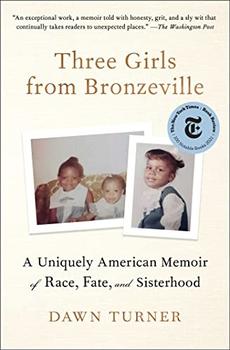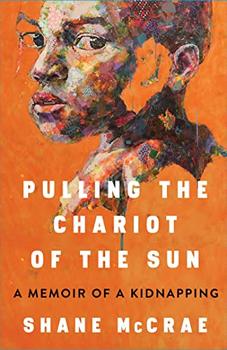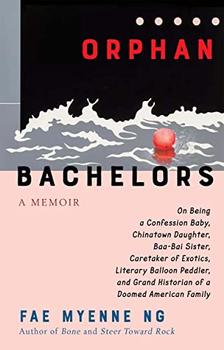Summary | Excerpt | Reviews | Beyond the book | Read-Alikes | Genres & Themes | Author Bio

A Uniquely American Memoir of Race, Fate, and Sisterhood
by Dawn TurnerA "beautiful, tragic, and inspiring" (Publishers Weekly, starred review) memoir about three Black girls from the storied Bronzeville section of Chicago that offers a penetrating exploration of race, opportunity, friendship, sisterhood, and the powerful forces at work that allow some to flourish…and others to falter.
They were three Black girls. Dawn, tall and studious; her sister, Kim, younger by three years and headstrong as they come; and her best friend, Debra, already prom-queen pretty by third grade. They bonded—fervently and intensely in that unique way of little girls—as they roamed the concrete landscape of Bronzeville, a historic neighborhood on Chicago's South Side, the destination of hundreds of thousands of Black folks who fled the ravages of the Jim Crow South.
These third-generation daughters of the Great Migration come of age in the 1970s, in the warm glow of the recent civil rights movement. It has offered them a promise, albeit nascent and fragile, that they will have more opportunities, rights, and freedoms than any generation of Black Americans in history. Their working-class, striving parents are eager for them to realize this hard-fought potential. But the girls have much more immediate concerns: hiding under the dining room table and eavesdropping on grown folks' business; collecting secret treasures; and daydreaming about their futures—Dawn and Debra, doctors, Kim a teacher. For a brief, wondrous moment the girls are all giggles and dreams and promises of "friends forever." And then fate intervenes, first slowly and then dramatically, sending them careening in wildly different directions. There's heartbreak, loss, displacement, and even murder. Dawn struggles to make sense of the shocking turns that consume her sister and her best friend, all the while asking herself a simple but profound question: Why?
In the vein of The Other Wes Moore and The Short and Tragic Life of Robert Peace, Three Girls from Bronzeville is a piercing memoir that chronicles Dawn's attempt to find answers. It's at once a celebration of sisterhood and friendship, a testimony to the unique struggles of Black women, and a tour-de-force about the complex interplay of race, class, and opportunity, and how those forces shape our lives and our capacity for resilience and redemption.
Dawn is the story's anchor. While her resilience is the stuff of legends — the poor girl who tramples class barriers to write for the Chicago Tribune — her success isn't contagious. Debra and Kim have a tumultuous and predictable struggle, beginning in adolescence. And yet Turner's memoir isn't just about destiny and friendship. Her ability to masterfully dissect racialized Chicago, her parents' marriage and her father's flaws give the story its strength. In our society, we are repeatedly told that children of the working class have damaged psyches. Turner wants us to know there is more to it than that...continued
Full Review
 (849 words)
(849 words)
(Reviewed by Valerie Morales).
Could you forgive the person who murdered your beloved son?
Weeks after Debra Trice was convicted of the first-degree murder of Raymond Jones she received a letter. It was from Margaret Jones, Raymond's mother. Mrs. Jones wrote, "[Y]ou have my forgiveness. So, when you feel you cannot make it, look up and talk to God, Jehovah is his name. Don't think of not living. He will not give you more than you can bear." She ended the letter with, "Please don't do anything to hurt your mother and sister's heart. They love you very much. Show them you are strong, not for yourself, but for them."
Debra is the sassy, pretty girl in Dawn Turner's memoir Three Girls from Bronzeville: A Uniquely American Memoir of Race, Fate, and Sisterhood. She ...

If you liked Three Girls from Bronzeville, try these:

Pulling the Chariot of the Sun
by Shane McCrae
Published 2023
An unforgettable memoir by an award-winning poet about being kidnapped from his Black father and raised by his white supremacist grandparents.

by Fae Myenne Ng
Published 2024
From the bestselling and award-winning author of novels Bone and Steer Toward Rock, Fae Myenne Ng's Orphan Bachelors is an extraordinary memoir of her beloved San Francisco's Chinatown and of a family building a life in a country bent on their exclusion
Any activity becomes creative when the doer cares about doing it right, or better.
Click Here to find out who said this, as well as discovering other famous literary quotes!